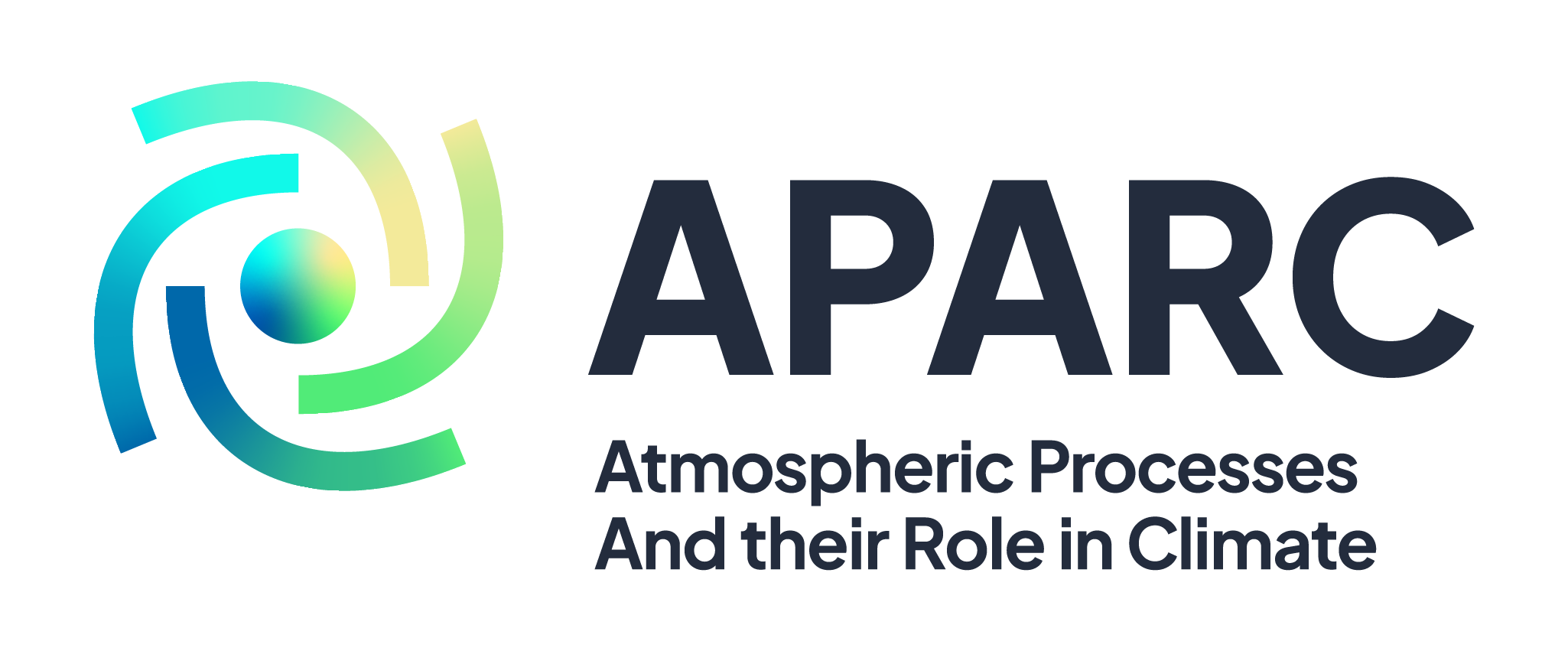 APARC website
APARC website
Founded in 1992, APARC (formely SPARC) is a core project of the World Climate Research Programme (WCRP). APARC coordinates international research efforts that apply knowledge of the atmosphere to understanding of how atmospheric chemical and physical processes interact with Earth’s climate system.
APARC activities are organized under three overarching themes, combining process studies, observations, and modelling.
The three overarching themes are:
1. Atmospheric Dynamics and Predictability
Under this theme, APARC, together with others in the WCRP community, focuses on understanding atmospheric dynamics and climate variability to provide better climate projections on scales from seasonal to centennial.
2. Chemistry and Climate
Three-way coupling between chemical, dynamical, and radiative processes could have important effects on climate, including modulation of climate sensitivity. APARC promotes a holistic view of the effect of these concurrent changes to understand the implications for climate. In addition, APARC has an identifiable role to play in better understanding the emissions of the gases controlled under the Montreal Protocol.
3. Long-term Records for Climate Understanding
APARC is renowned for its role in assessing the value of long-term climate data records. These are used to improve our understanding of the climate system, climate variability and trends as well as for evaluating climate models. APARC promotes the creation, analysis, and interpretation of long-term climate data records that require international cooperation.
The activities of APARC are governed and coordinated by the APARC leadership team that is composed of experts from around the world who dedicate their time to APARC’s international activities. These include the APARC Scientific Steering Group (SSG), who serve to guide APARC’s scientific focus, targeted activities and their leaders, the WCRP Joint Science Committee liaisons, and WCRP Secretariat officer, as well as the APARC International Project Office (IPO) that is located in Oberpfaffenhofen and sponsored by DLR. In addition to coordinating science, APARC also established a APARC Data Centre, now hosted by Centre for Environmental Data Archival (CEDA). The APARC Data Centre provides a platform to collect and archive data sets that are used for APARC activities. It also provides a means for APARC scientists to exchange and store their data and documentation as well as to disseminate their data set to the broader scientific community.
To find out more on how to get involved in APARC, visit the website here.

